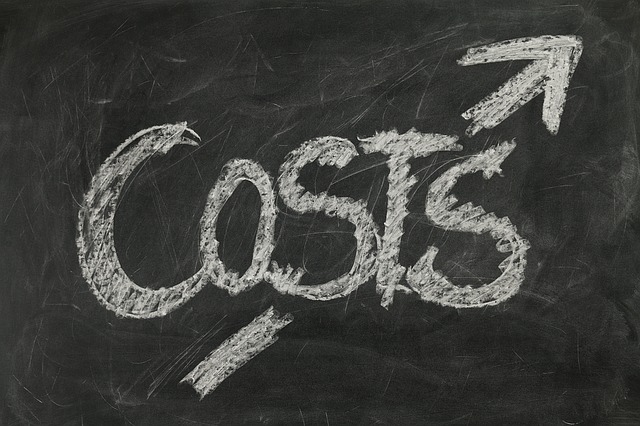Fixed, Variable, and Periodic Expenses
There are three types of expenses to be aware of when it comes to spending: fixed, variable, and periodic. The information below will help you understand these types of costs and how to plan for them properly.
Fixed Expenses
 Fixed costs occur at a regular frequency and in a predictable quantity, making them the easiest for planning. For example, rent or mortgage payments, auto insurance, and internet bills are all fixed costs.
Fixed costs occur at a regular frequency and in a predictable quantity, making them the easiest for planning. For example, rent or mortgage payments, auto insurance, and internet bills are all fixed costs.
Typically, these bills have a set amount that doesn’t fluctuate. Additionally, they are due on the same day every month. Because fixed costs are so predictable, the total amount you pay each month for them will effectively become your spending baseline.
How to Reduce Fixed Expenses?
Fixed costs are an excellent place to start if you’re attempting to lower your monthly cash outflow. Unlike decreasing or eliminating variable expenditures, which only have a short-term effect on your budget, finding strategies to cut your fixed expenses is a money-saving tip that will have a long-term influence on your financial life.
That’s why things like looking for a lower-cost vehicle insurance policy or a lower-cost mobile phone plan may be advantageous.
You may also be able to lower your monthly fixed costs by downsizing your home or moving to a lower-cost living area.
Here are a handful of the most effective techniques to lower your fixed expenditures:
Getting Out of Debt
Getting out of debt is one of the fastest strategies to lower your overall fixed costs. Consider it this way: every monthly loan payment you make is a fixed cost. As a result, each time you pay off debt and remove a monthly payment, you lower the overall amount you spend toward fixed costs. This money can then be allocated towards other expenses or areas of your budget.
Save Money on Insurance Premiums
Finding renters’ or vehicle insurance with a reduced monthly payment may have a significant influence on your fixed expenditures. Just make sure that you don’t give up any coverage you need. For instance, if you live somewhere that hails a lot, then you wouldn’t want to give up hail coverage to get a slightly lower rate.
Get a Cheaper Cell Phone Plan
Cell phone plans might seem a touch absurd at times. However, there’s no need to pay through the nose for it when so many choices are available. Instead, look for a better plan by shopping around. Many carriers now offer bundling options that can help you save.
Lower Your Rent or Mortgage Payments
If you believe your fixed costs are excessively expensive, you should try lowering your living costs. If you have a mortgage, this may mean selling your home and purchasing a new one with a lower monthly payment.
What is a Periodic Expense?
 Periodic expenses occur in regular intervals but less often than fixed expenses. For example, periodic expenses can be quarterly as opposed to monthly fixed expenses. Unlike fixed expenses, periodic expenses may also vary in amount.
Periodic expenses occur in regular intervals but less often than fixed expenses. For example, periodic expenses can be quarterly as opposed to monthly fixed expenses. Unlike fixed expenses, periodic expenses may also vary in amount.
For example, periodic costs in the automotive industry include frequent oil changes and yearly registration fees. Furthermore, quarterly taxes are likely one of your most significant recurring costs if you operate a company.
Periodic costs have the disadvantage of being required, making them challenging to eliminate from your budget. It wouldn’t be a smart idea to cut your periodic expenditures by skipping oil changes or failing to pay your taxes. Both costs are unavoidable.
Instead, budget and plan for recurring costs so that they do not creep up on you.
Your periodic expenses may include:
- Property taxes
- Car maintenance
- Home maintenance
- Memberships
- Pet care
How to Reduce Periodic Expenses?
Because they’re often necessary, reducing periodic expenses might be difficult. For example, putting off an oil change to save a few dollars might end up costing you a lot more in the long run. However, some periodic expenditures may be reduced by determining if they are essential or discovering lower-cost alternatives.
For instance, one way to save on car maintenance is to check your automobile’s needs regularly. Refraining from getting your car inspected as often as you should, can result in a much larger bill than originally expected.
The easiest strategy to budget for periodic costs is to divide the yearly value by 12 and put aside that amount every month. This way, you’ll have the money when the cost arises.
Additionally, you can slowly save up for these expenses throughout the year. Create a dedicated account for your quarterly expenses and invest a small amount each month. For example, you can take the total cost and divide it by the number of months until the payment is due. By the time you receive the bill for periodic expenses, you will have enough to pay for it without stressing.
Variable Expenses
 A variable expense changes by how much you use a product or service. That means you influence it via your spending habits.
A variable expense changes by how much you use a product or service. That means you influence it via your spending habits.
Gas for your vehicle, your power bill, and your monthly food budget all fall under the category of variable costs. Other examples of variable expenses include:
- Groceries
- Utilities
- Eating out
- Gas and transportation
- Entertainment
How to Reduce Variable Expenses?
When it comes to your finances, variable costs are the simplest to manage. All you need to do is make a deliberate decision to cut back.
For example, if you want to save money on your electric bill, you can switch off lights and use less energy.
You can save money on gas by using public transit or riding your bike to work.
Changing your spending patterns and making new choices may help you minimize or eliminate variable costs from your budget. Here are some ideas for lowering variable costs:
- Increase the number of times you eat at home versus eating out
- Look for ways to have fun without breaking the bank
- Stop worrying about impressing people with the things you purchase
It might be challenging to reduce variable expenditures, and your way of life will almost certainly alter due to the changes. That might take some time to adjust to, but the benefits of financial stability may be well worth it.
Because you’re attempting to conserve money, saying no to friends and family might strain your relationships. However, you may always recommend low-cost alternatives to expensive activities.
FAQ
Is Food Considered a Regular or Fixed Expense?
Food isn’t a set cost whether you’re talking about groceries, restaurant meals, or both. Expenses that are fixed do not vary. Rent, mortgage, and auto loan payments are examples of fixed costs.
Is a Mobile Phone Bill a Recurring Cost?
Fixed costs do not fluctuate from month to month. A mobile phone bill is a constant expenditure for many individuals. But if you sometimes call long distance or incur overage charges, your monthly rate will vary. Therefore, consider your mobile phone a variable expenditure if you don’t know what your bill will be.
Is There a Difference between a Flexible Expenditure and a Periodic Expense?
The terms “flexible expenditures” and “periodic expenses” are not interchangeable. You may adjust or eliminate a variable item from your budget by altering your spending patterns. Entertainment and food are examples of flexible costs. Tuition and quarterly taxes are examples of periodic costs that occur less often.
What Is a Fixed Expenditure That Occurs on a Regular Basis?
Rent or mortgage payments are examples of fixed costs since they are the same amount each month. Fixed costs that occur on a regular basis are not invoiced monthly. They may be invoiced quarterly or yearly, but the amount required remains consistent from billing cycle to billing cycle.
What Exactly Qualifies as a Variable Expense?
Variable costs are those that vary from month to month. Variable costs are often, but not always, discretionary. For example, dining out is a variable expenditure, but so are purchasing groceries and filling up your vehicle with gas since you spend a different amount each month.
Is Entertainment Considered a Variable Cost?
The cost of entertainment is a variable cost. You never know how much money you’ll spend on entertainment each month. As a result, your entertainment costs are likely to change as well.





